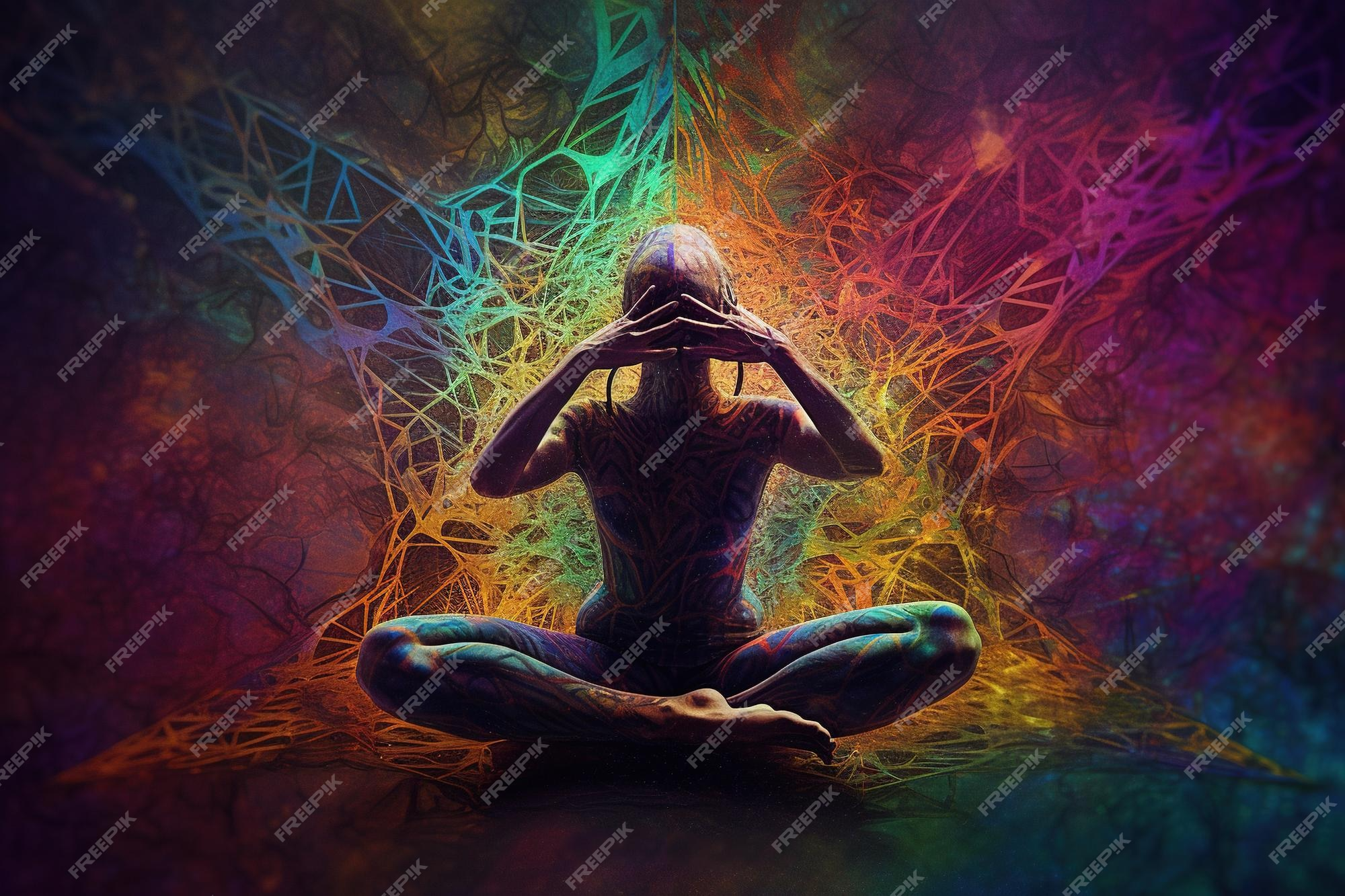Yoga and spirituality are two interwoven ideas that have charmed the human creative mind for a really long time. While yoga has acquired enormous notoriety as an activity routine, it is well established in otherworldliness and offers a significant way to self-revelation and inward harmony. This article investigates the mind-boggling connection between yoga and spirituality, diving into their verifiable beginnings, the essence of yoga as a profound practice, and the extraordinary impacts of joining yoga and spirituality.

Verifiable Beginnings of Yoga and Spirituality
Yoga and spirituality are foundations in old India, with experiences spreading over millennia. Yoga, derived from the Sanskrit word “yuj,” means to join together or burden. This ancient practice was at first evolved as a way to accomplish profound edification and self-acknowledgment. The historical backdrop of yoga can be traced back to human advancement in the Indus Valley, dating as far back as 2700 BCE.
Otherworldliness, then again, is a broad term enveloping a unique interaction with the heavenly or the extraordinary. In India, otherworldliness has profound social and strict ties, with rehearses like reflection, supplication, and the quest for a deeper comprehension of oneself as vital parts.
It was through the development of yoga that otherworldliness turned out to be more incorporated into the training. Old texts like the Yoga Sutras of Patanjali, dating back to around 200 CE, presented the philosophical and otherworldly underpinnings of yoga. These sutras gave an extensive manual for yoga and its association with profound development, underscoring the significance of self-restraint, reflection, and care.
The Embodiment of Yoga as a Profound Practice
Yoga, as an otherworldly practice, centers around the all-encompassing prosperity of an individual—the whole self. It isn’t just a bunch of actual stances and breathing activities; it is a pathway to self-acknowledgment and otherworldly arousal. Here are a few critical parts of yoga as a magical practice:
Mindfulness: Yoga urges experts to be available at the time and to notice their contemplations and feelings without judgment. This care develops mindfulness and can prompt a more profound association with one’s internal identity.
Meditation: Contemplation is a principal part of yoga, and it fills in as a way to calm the psyche and investigate the profundities of one’s cognizance. Through reflection, people can encounter otherworldly experiences and a feeling of unity with the universe.
Self-investigation: Yoga empowers self-investigation and contemplation. Specialists are encouraged to look at their convictions, values, and the center of their being, assisting them with fostering a more grounded association with their otherworldliness.
Ethical Rules: The Yoga Sutras frame the Yamas (restrictions) and Niyamas (observances), which are moral rules to assist people with having an existence that is one with their otherworldly qualities. These rules incorporate standards, for example, peacefulness, honesty, and happiness.
Connection to the Heavenly: For some, yoga is a way to interface with a higher power or heavenly presence. The act of Bhakti Yoga, for example, centers around commitment and giving up to a chosen god, developing one’s profound association.
Extraordinary Impacts of Consolidating Yoga and Spirituality
The marriage of yoga and spirituality can profoundly affect a person’s life. It can prompt a significant change in context, an elevated feeling of internal harmony, and a more prominent association with the universe. Here are a portion of the groundbreaking impacts of this mix:
Stress Decrease: The act of yoga and spirituality assists people with managing pressure and uneasiness. By figuring out how to be available and developing a feeling of internal quiet, professionals can explore life’s difficulties with more noteworthy poise.
Increased Mindfulness: Yoga cultivates mindfulness by empowering people to investigate their internal considerations, feelings, and convictions. This expanded mindfulness considers self-awareness and self-acknowledgment.
Enhanced Actual Wellbeing: While yoga is fundamentally an otherworldly practice, it has various medical advantages, including further adaptability, strength, and equilibrium. These actual upgrades can add to a general feeling of prosperity.
Spiritual Satisfaction: Joining yoga and spirituality gives a feeling of motivation and profound satisfaction. It permits people to investigate the profundities of their otherworldliness and foster a more profound association with the heavenly or the extraordinary.
Inner Harmony: The main groundbreaking impact is the experience of internal harmony. Yoga and spirituality can prompt a feeling of peacefulness, happiness, and independence from the tensions of the outer world.
Final Words
Yoga and spirituality are inherently connected, offering a significant excursion towards self-revelation and inward harmony. Yoga, with its verifiable roots in old India, isn’t simply an actual practice but a profound one that envelops care, reflection, and self-investigation. When joined with otherworldliness, yoga takes on a groundbreaking job in a person’s life, lessening pressure, improving mindfulness, and encouraging profound satisfaction.

In the present quick-moving world, the association of yoga and spirituality can act as a directing light, driving people to a more profound comprehension of themselves and the universe. It’s an update that the genuine substance of yoga lies in the actual stances and the otherworldly excursion that unfurls inside. As people embrace the all-encompassing nature of yoga and spirituality, they can track down comfort, self-acknowledgment, and a significant feeling of internal harmony.
Faqs
What is the association between yoga and spirituality?
The association between yoga and spirituality is well established in the verifiable starting points of yoga. While yoga is frequently polished for its physical and emotional well-being benefits, its profound aspect centers around self-acknowledgment and inward harmony. Yoga energizes mindfulness, care, and contemplation, furnishing a pathway to interface with one’s internal identity and the heavenly. Otherworldliness is a necessary piece of the way of thinking behind yoga, underscoring moral rules and investigating one’s relationship with the extraordinary.
Is yoga a religion or an otherworldly practice?
Yoga isn’t a religion, yet it is an otherworldly practice. An old framework originates before a particular religion and can be drilled by individuals of different strict foundations or by people who are not severe by any means. Yoga’s otherworldly viewpoint is more about individual self-acknowledgment, self-improvement, and interfacing with the heavenly or a higher power. While there are phenomenal viewpoints to yoga, it doesn’t expect adherence to a specific strict tenet.
What are the various sorts of yoga, and do they all have a profound part?
There are different kinds of yoga, and considering that they vary in their accentuation and approach, most have an otherworldly part. A few typical types of yoga incorporate Hatha, Vinyasa, Ashtanga, Bhakti, Karma, and Jnana yoga. Hatha and Vinyasa yoga frequently center around the actual stances and may have a less articulated, profound perspective. In contrast, Bhakti yoga underscores commitment and love for the heavenly, and Karma yoga centers around benevolent help. Jnana yoga is a way of insight and self-request. In this large number of types, the profound part changes; however, they generally offer a method for otherworldly development.
Can one practice yoga and spirituality without clashing with their strict convictions?
Indeed, it is feasible to rehearse yoga and spirituality without clashing with one’s strict convictions. Yoga is versatile and can be custom-fitted to supplement an individual’s strict confidence or individual way of thinking. Numerous people consider yoga as a way to develop their association with their confidence or as a method for improving their otherworldly practices. It is fundamental to pick yoga practices and lessons that align with one’s strict or supernatural convictions and to be deferential to one’s singular confidence while rehearsing yoga.
